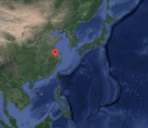The Pearls
Pearls are produced through a process of biomineralization. Mollusks form them around a nucleus that is formed by a parasite, a grain of sand or any other intruding particle that enters a shell. The process of producing pearls is called grafting or nucleation: a nucleus is inserted into the oyster shell around which the mollusk will grow a pearl.
The serial production of the first cultured pearls is attributed to He Jinyang in thirteenth-century Deqing, China.[Cf] The early cultured pearls were blister pearls, attached to one side of the oyster shells. They preceded the crafting of round cultured pearls which was mastered in Japan by the late nineteenth century, after which the Japanese Mikimoto brand dominated the global pearl export market until 1999 when they were superseded by pearls cultured in southern China.[Xu & Zhang 2005] Accordingly, contemporary artists who use pearls for installations and sculptures, mostly rely on Chinese supplies. Some of them, like the Chinese-Canadian artist Xiaojing Yan (1978- ), explicitly comment on that:“I am drawn to Chinese materials and traditions. I often take traditional Chinese techniques and reinvent them, thereby giving them a new identity within a contemporary context and presentation.”[Smith 2015, p 73-4]). Other artists make the origin of the pearls in southern China part of the artwork. For example, Anne Carrington’s Wing Wo Wave and White Cloud City [Cf]
Ai Weiwei, who has worked with a variety of materials in his art, repeatedly reflects on why and how certain objects and matters that we associate with Chinese heritage really deserve that label.[Cf]

](https://micrio.thingsthattalk.net/fawkT/views/max/227x128.jpg)
](https://micrio.thingsthattalk.net/yAqtj/views/max/128x128.jpg)